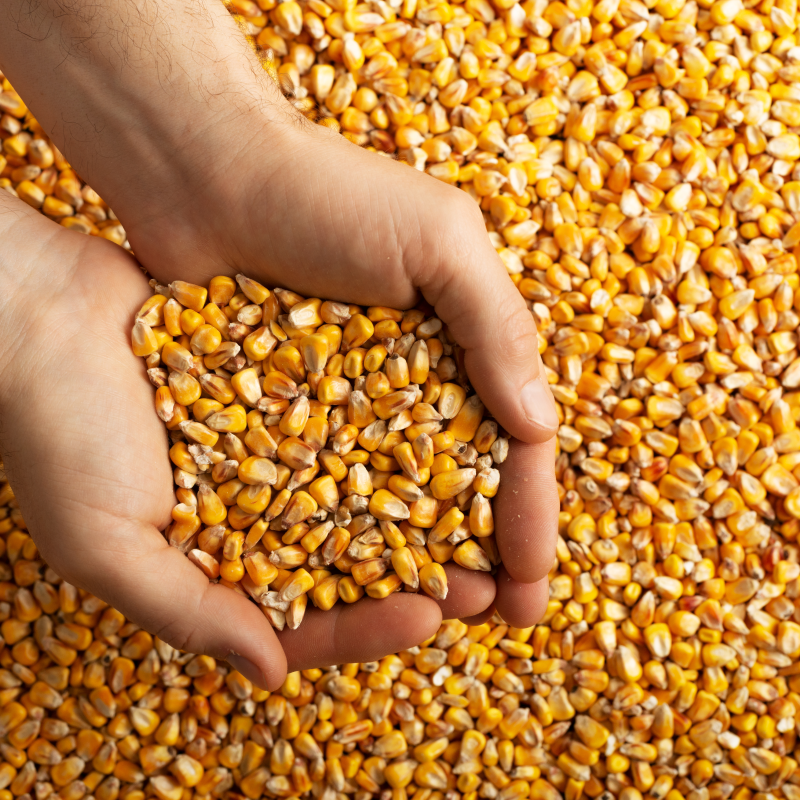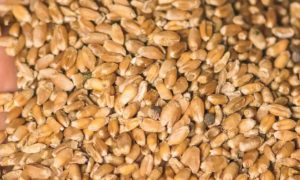GMO: Nigerian Farmers Divided Over Tela Maize

Nigeria’s approval of genetically modified (GM) maize, Tela maize, has sparked controversy over GMO food safety. While the government sees it as a solution to food insecurity, some farmers and experts raise concerns about potential health risks. Globally, 28 European countries, Russia, and several nations in Africa, Asia, and South America have banned GMO foods. However, many countries, including the US, Brazil, and China, continue to cultivate and consume GMO crops. About 47 million smallholder farmers have benefited from biotech crops worldwide, but ongoing monitoring and research are essential to address potential health risks.
The recent move by the Fed – eral Government to unveil and approve the release of four varieties of genetically modified (GM) maize, known as Tela maize, is causing controversies nationwide with regard to the safety of GMO food consumption.
The Tela maize was developed locally and given to farmers under the aegis of All Farmers Association of Nigeria (AFAN) for planting.
The maize is said to be drought tolerant and pest-resistant, with high yielding capacity, and was unveiled in partnership with the African Agricultural Technology Foundation (AATF), and the Institute for Agricultural Research (IAR) in Abuja.
Although the government perceived the gesture as positive to check food insecurity, the development has, however, divided the country’s agric sector community with some sections of AFAN calling for the removal of the GM maize in circulation, while others say it should be continued with as it is meant to improve food security in the country.
The Minister of State for Agriculture and Food Security, Sabi Abdullahi, handed over the new Tela maize varieties to help the fight against food insecurity to the Nigerian farmers.
A global report on GMOs sighted by New Telegraph had shown that countries like Algeria and Madagascar in Africa; Turkiye, Kyrgyzstan, Bhushan, Saudi Arabia, in Asia; Belize, Peru, Ecuador and Venezuela in South and Central America; and 28 countries in Europe, had banned GMO foods because of its health scare.
In addition, Russia is the most populous country to ban both the cultivation and importation of GMO crops. Besides, in the global report on GMOs, a map shows where genetically engineered (GE) crops were approved, grown and commercialised at one time- 22 crops in 42 countries.
Some cultivations have been suspended on the GMO crops. Particularly, countries like Germany, Czech, France, Burkina Faso, Sweden, Poland, Romenia, Ukraine, Bulgaria, Slovakia, Cuba, Cuba and Iran, have all banned GMO foods. While countries like Spain, Portugal, South Africa, Nigeria, USA, Mexico, Honduras, China, Sudan, Kenya, Colombia, Chile, China, Bolivia, Argentina, Uruguay, Paraguay, Brazil, India, Bangladesh, Myanmar, Vietnam, Philippines, Indonesia, Australia, Eswatini and Pakistan are still allowing GMO foods cultivation and plantation.
The report indicated that about 47 million Smallholder farmers and families benefited from Biotech crops in 2019 worldwide.
In addition, the report also stated that Spain is the leading country in Europe promoting Biotechnology crops. Also, US is the largest producers of Biotech crops in the world planting 7.8 million of global Biotech crops annually.
Meanwhile, the report shows “about 2.7 billion hectares of Biotech crops planted since 1998 worldwide. While more than 30 countries have planted Biotech crops since 1996.”
In Nigeria, Genetically Modified Organism (GMO) maize is a type of maize that has been genetically engineered to possess certain traits, such as resistance to pests or drought.
The use of GMO maize can potentially lead to increased crop yields and improved harvests. However, there are concerns about the potential health risks associated with consuming GMO farm produce.
Some of the potential health risks include: Allergic reactions: GMO foods can introduce new allergens or increase the levels of existing allergens, potentially leading to allergic reactions in some individuals.
Gene transfer: Genetic material from GMO foods can potentially transfer to humans, potentially leading to unintended health consequences. Resistance and immunity:
Overuse of GMO crops can lead to the development of “superweeds” and “superpests” that are resistant to pesticides, potentially leading to increased pesticide use and exposure.
Genetic modification can have unintended consequences, such as changes in nutritional content or the introduction of toxic substances.
It’s important to note that the scientific consensus is that GMO foods are safe for human consumption, and many countries have approved the use of GMO crops.
However, it’s also important to continue monitoring and researching the potential health risks associated with GMO foods.
Source Link : https://newtelegraphng.com/gmo-nigerian-farmers-divided-over-tela-maize/#google_vignette















